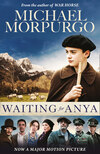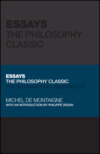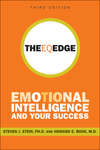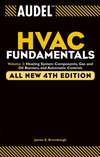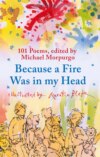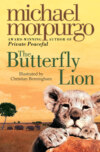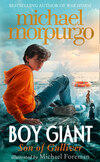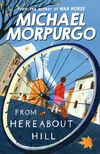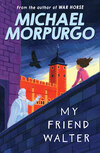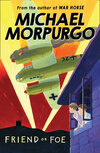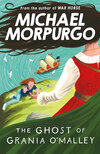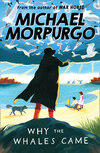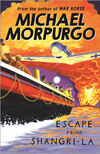Kitabı oku: «Waiting for Anya», sayfa 2
For some weeks after this the village was diverted, its spirits lifted by stories of the great bear hunt, stories that eclipsed even the grim news of the war, of more German victories everywhere. They heard about the world outside through newspapers that few people believed because they were controlled by the Germans, but also through Radio London and what you heard there had to be believed. There was no consolation to be gleaned from either source, so they talked of the bear hunt to forget the war and for a time they could do so.
At school Jo had become quite the hero and that was not entirely to his liking. If Jo had learned one lesson at school it was that it was better to keep a low profile – that way you kept out of trouble. But now he was thrust suddenly into the limelight. He had admirers and therefore enemies too. Even his best friend, Laurent, seemed to look at him differently. Only Monsieur Audap, his teacher, was quite unimpressed by the whole thing. Strict as he was, severe even at times, Monsieur Audap was scrupulously fair, and was liked and respected for it. A retiring man, he said very little, but what he did say was always worth listening to.
The day after Armand Jollet put up the bearskin on the wall of his grocer’s shop for all the world to admire, Monsieur Audap spent the entire morning telling the children all about the mountain bears, about where they lived and how they lived. After hibernation, he said, in the Spring when their body fat was low and they had young to feed, then they would dare anything to find food enough to provide for themselves and for their cubs. Bears, he said, never came close to people unless they had to. They knew of their cruelty, of their voracious appetite for killing and of their greed. Bears, he said, were neither stupid nor suicidal. This one must have been starving to have risked such an attack. Almost certainly, said Monsieur Audap, she had cubs to feed – usually there were two, maybe just one. They’d be dead by now, of course. They needed their mother’s milk for at least three or four months. Jo looked down at his desk so that his eyes would not betray him.
As time passed though the bear talk both in and out of school became less frequent and less triumphalist; and once again news of the war, of unending, depressing defeats began to preoccupy the village. But to many of the children, to Jo too, the war was still an unreal thing. In over two years of war they had not seen a single German soldier, no planes, no tanks, nothing. The war was in the talk and they heard plenty of that; and talk almost always meant argument. What should they do? Should they save what could be saved? Should they accept the finality of defeat and join Maréchal Pétain, or should they fight on with the English and join the French colonel, whose name Jo could never remember but who had broadcast from London that the war was not over, that the Germans could be beaten, must be beaten and would be beaten? And all the while they waited for the prisoners-of-war to come home and they didn’t. They waited for the Germans to come and they didn’t.
‘I just want it over with, Jo,’ Maman said. ‘I want your father home. I don’t care what it takes. I want it like it was before.’ And although Grandpère did not often argue with her openly, Jo knew what he thought. ‘That Colonel in London, that De Gaulle, he’s our only hope I tell you,’ Grandpère had told him. ‘Him and the English. I don’t like the English, never have done, but at least they’re fighting the Germans and anyone who is fighting them is a friend of France, that’s how I see it. And I should know, Jo, I fought them before, remember? We beat them then and we’ll beat them again. We’ve got to. There’ll be nothing left for you or for any of us if we don’t.’ What Jo thought about the war and about the occupation seemed to depend on whether he had just talked to Maman or to Grandpère: he could never make up his mind.
Jo thought often of Papa as he sat on his rock watching the sheep. He had missed him at first, the loudness of him about the house and the smell of him when he came in from work; but now as time passed he was enjoying his new role as the man about the house. He enjoyed sitting in Papa’s chair at the kitchen table and doing Papa’s work about the farm. But whether it was the war or whether it was Papa competing for his thoughts, Jo’s mind was always drawn back to the bear cub and the man he’d met in the woods on the day of the bear hunt. He had to know who he was, what he was hiding from and why he was waiting for Anya. Every passing day only intensified his longing to go back up to the Widow Horcada’s farm to find out what was going on and to see the bear cub again. But there was always work to be done, farm work, school work. It was difficult to get away – that was what he told himself anyway.
Grandpère took the sheep to the high pastures that summer. Jo was still too young, Maman said, to do it on his own and she didn’t want him missing any more school. ‘You only get your learning once,’ she said, and besides she needed him at home – there was the bracken to cut and to turn, or the hay to make; and at weekends there were the supplies to be taken up to Grandpère in the mountains and the cheeses brought back to be salted, stored and sold. The work was long and hard, but if Jo was honest with himself – and as time passed he had to be – he knew the work was an excuse. The fact was that he could not summon up the courage to go back to Widow Horcada’s farm. Every time he had seen her coming he’d hidden from her; and the one time he couldn’t avoid her, when she’d come into the grocer’s shop, he’d run out without buying what he went in there for. He hadn’t even dared to look her in the eye to see if she recognised him as the boy peering in through her window that evening.
Time and again he had looked up the hillside towards her farmhouse and had seen the Widow Horcada out in her fields, making her hay, milking her cow or driving her pigs, but there’d been no sign of anyone else. He was beginning to think he had imagined the whole thing.
Then one blustery Autumn day, after the sheep had come down from the pastures and he was spreading out the bracken for their bedding in the barn, he saw Widow Horcada scurrying past, black scarf over her head, flowers in her hand. He knew she’d be making for the churchyard to put flowers on her husband’s grave. She’d stop to do her shopping on the way back, she always did. Jo knew he had a clear half hour to get up there and back: he could do it if he hurried. She’d never see him, not if he was careful. Rouf tried to come with him as he always did. He shut him in the barn and shouted to Maman that he wouldn’t be long.
He kept under the cover of the trees as long as he could. From there he could see without being seen. Her pigs were foraging in the field below the house and the cow was lying curled asleep in the middle of them. There was no one about. He threw caution to the wind because he had to – there was no time for anything else. He hared across the field until he reached the safety of the barn wall where he knew he could not be seen from the house. He ran around the back of the barn and into the courtyard behind. There was no sound except for the contented grunting of rooting pigs. He was creeping past the barn door when he heard something shuffling around inside. The bear cub, it must be the bear cub.
He looked about him and then opened the door slowly. Like all the barns it was long and low and dark, with bracken on the floor and hay in the wooden rack that ran the length of the wall. But there was no bear cub, and no other animals either. Yet he was sure he’d heard something, quite sure. He pushed the door wide open so as to throw as much light as possible down the barn. There was one small dirty window at the far end, and the shutters were banging open and shut, first one and then the other. Jo peered into the darkness. He would go no further. He could see well enough from the doorway. He was turning to go when he trod on something. He bent down and picked up a shoe, a child’s shoe. The strap was broken. He thought little of it at first. He would have dropped it and left had he not heard the breathing – a regular wheezing breathing.
It came quite definitely from the hayrack about halfway down the barn. Jo took a few steps towards it and the breathing stopped. He thought of the bear cub and of the hibernation Monsieur Audap had told them about, but he thought that it couldn’t be the bear cub because it wasn’t winter yet and anyway a bear cub would hardly be sleeping in a hayrack – but then perhaps it would. He took a few more tentative steps forward and peered into the hay. The breathing began again a little further on and quite suddenly he found himself not looking at hay at all but at two eyes that stared back at him unblinking and terrified. Jo could do nothing for a moment but stare back into them. They were not the eyes of a bear for the face that went with them was pale and thin under a fringe of dark hair.
Jo backed away slowly, swallowing his fear. He had the presence of mind to close the door quietly and it was just as well he did for across the yard Widow Horcada was bent over, holding a bucket under an outdoor tap. She had her back to him and was humming quietly to herself. For a few moments he stood looking at her disbelieving. How could she be back so soon? It wasn’t possible. Yet there she was in front of him. She had only to turn round. It was just a few steps to the corner of the barn and safety. He’d make it if he could move silently. Without taking his eyes off her he began to inch his way along the wall.
He knew he should have looked where he was going. He told himself so as the fork he blundered into clattered to the ground. Jo looked at the Widow Horcada, the bucket fell out of her hand as the black shawl swung round. Jo dropped the shoe, stumbled over the fork and ran and ran. He rounded the corner of the barn, but there he was stopped in his tracks, for up the hill, a large basket in one hand, a stick in the other, came Widow Horcada. She looked up, saw him and shouted at him. He could not hear what she was saying. Jo turned again and ran back into the yard – it was the only way he could go. She was there too and coming towards him. He looked now from one to the other. Fear crept up his spine like a warm cat and he felt the hair rise on the back of his neck. Never in all his life had he felt like screaming until this moment. He wanted to but he could not. And then one of them spoke, the one striding across the yard towards him.
‘It’s me.’ It was a man’s voice. ‘It’s me.’ And he pulled the shawl off his head. The red beard was longer than Jo remembered but it was the same man. ‘Don’t you remember me?’ he said.
CHAPTER 3
JO HAD NOWHERE TO RUN TO EVEN IF HE’D wanted to and he wasn’t sure now that he did. The man stooped to pick up the shoe.
‘And where did you find this then?’ he asked.
‘In the barn,’ said Jo. ‘I was only looking. I thought you might have the bear cub in there.’ The man wiped the shoe on the end of the shawl. There were footsteps coming into the yard behind him. Jo turned. The Black Widow stood there breathing hard, resting her weight on her stick. The man went over to her and took the basket.
‘It’s all right Grandmère,’ he said putting an arm around her. ‘It’s that boy, the same boy.’ Widow Horcada limped across the yard towards him. It was all Jo could do not to back away. She looked at him long and hard.
‘Well, well,’ she said, ‘so it was you. I thought as much. I wasn’t sure, not until you pushed past me in the shop the other day. I knew then all right. You shouldn’t go peeking through other people’s windows.’ She caught sight of the shoe in the man’s hand. ‘So he knows then,’ she said.
‘He’s been in the barn,’ he said.
‘Has he indeed?’ said the Widow. ‘And what did you find in there boy?’
There was no point in futile protestations and denials but Jo tried them anyway. ‘I don’t know what you mean,’ he said feebly.
She stabbed her stick into the ground by his foot. ‘Besides the shoe,’ she said, ‘did you see anything else in there? Well, did you?’ Jo looked down to avoid her eyes. ‘I don’t like a child that won’t look me in the eye,’ she said and she lifted his chin until he had to look at her. Jo had never looked at her this closely and he was surprised by what he saw. It was not the cruel face he had always supposed but leathery and lined with age and work.
‘Yes, I did,’ Jo said. She released his chin.
‘And do you always speak the truth?’ she asked quietly.
Jo shook his head. ‘No,’ he said and her face cracked into a sudden smile.
‘Seems you were right then, Benjamin. A rare thing, an honest boy. Inside,’ she said, ‘bring him inside,’ and she walked away towards the door. ‘Boys like honey,’ she said. ‘We’ll give him some honey.’ And she disappeared inside the house.
Jo was reluctant to follow. The man put a hand on his shoulder. ‘Have you still got him?’ Jo asked. ‘The bear cub, have you still got him?’
The man shook his head. ‘Not any more. A month after we found him, just as soon as I thought he could fend for himself, I took him high up into the mountains and left him but he’s been coming back from time to time. I think maybe he thinks of me as his mother, either that or he just doesn’t like being on his own. Come on.’
Widow Horcada was putting a plate of honeycomb out on the table. Suddenly the old lady leaned forward and had to hold on to the table to steady herself. The man was by her side at once and helped her to her chair.
‘You’ve been overdoing it again,’ he said. ‘I’ve told you haven’t I?’
‘Don’t fuss,’ she said, pushing him away. ‘Don’t fuss me. I’ll be all right. Sit down boy, sit down over there in the light, I want to be able to see your face.’ Jo sat down at the table. ‘Eat up, boy, eat up.’ She had a strange habit of wrinkling her nose and sniffing and Jo found it difficult not to stare at her. He cut out a corner of the honeycomb and spread it on the bread. The man was hanging the big shawl on the back of the door.
‘I know your father,’ said Widow Horcada, not taking her eyes off his face. ‘Prisoner-of-war isn’t he?’ Jo nodded. ‘I knew your grandfather better though. I told you about him didn’t I Benjamin?’ Benjamin nodded and she turned back to Jo. ‘I nearly married him once. Did he ever tell you that, boy? Sweethearts we were.’ She sighed and sat back in her chair. ‘Ah well, we both went our separate ways for better or for worse. You’re not eating, boy.’ Jo took another mouthful. ‘Jo Lalande he’s called, aren’t you, boy? And you know who I am don’t you?’ Jo nodded. ‘This is Benjamin, my son-in-law, but then of course you’ve met him before, haven’t you?’ She paused for a moment, her searching eyes still fixed on Jo. She blew her nose and tucked her handkerchief into her sleeve. ‘Well,’ she said. ‘I suppose he’ll have to be told. Nothing else for it is there? But I don’t like it. I don’t like it one bit.’
‘It’ll be all right,’ said Benjamin. He was standing behind her now and looking down at Jo. ‘What he doesn’t know already – and he knows plenty – he’s guessed at, and guessing is a lot more dangerous than knowing. And we know we can trust him. After all he’s known about us for months now, and he’s not said a word. If he had then we’d have known about it you can be sure of that. We’d have had the police knocking on the door in the middle of the night by now. No, we don’t need to worry about him. We can trust him.’
‘Let’s hope so,’ said the Widow wearily. ‘Let’s hope so.’
Benjamin came and sat down opposite Jo at the table. ‘It’s difficult to know where to start, Jo,’ he said, ‘but since I’m the cause of all the trouble I’ll start with me. I’m a Jew,’ he said. ‘D’you know what that is?’
‘They’re in the Bible aren’t they?’ said Jo.
Benjamin shook his head and laughed. ‘Yes,’ he said. ‘We’re in the Bible and there’s plenty of people think that’s where we should’ve stayed.’ He looked down at his hands and picked at the corner of his thumb nail. ‘It was all rumours at first,’ he went on, ‘rumours you couldn’t believe, rumours you didn’t want to believe. But bit by bit the rumours became facts, facts that had to be believed. They began on their own Jews, in Germany. First they took away their work, then their property; and they made them wear yellow stars on their coats. Then they started rounding them up and sending them off to the camps. We knew it was happening but we thought we were safe enough in Paris, me and little Anya – Anya, she’s my daughter. But of course we weren’t. They invaded France and Paris fell. There was only one place left we could go. We came here for a holiday a few years back, Anya and me, to see where her mother was brought up, to see Grandmère. The happiest time of our lives it was too. So when the invasion came we decided to come back here.’
‘Best place too, long as you’re sensible,’ said the Widow Horcada pointedly. ‘Safe as houses and you can be over the border in five hours.’
‘I walked it once,’ said Benjamin, ‘with Anya.’
‘I know,’ said Jo. ‘You picked flowers for my father.’
Benjamin frowned for a moment and then his eyes brightened suddenly. ‘So it was you. You were the boy. You remember I told you, Grandmère, that day that we watched the shepherd making cheese. He was your father?’ Jo nodded. ‘And you were the little boy, weren’t you? Well, well, it’s a small world.’ The light left his eyes as quickly as it had come. ‘We left Paris together, Anya and me. Trouble was everyone was doing the same thing and the roads were jammed with cars and carts and lorries and people – thousands of people, everyone trying to get away. They machine-gunned us from the air whenever they felt like it and when the planes came we all scattered. After they’d gone it was always difficult to find each other again; so we made an agreement, Anya and me, that if we were separated we would find our way back here, to Grandmère’s house at Lescun, we would wait for each other and then we could escape together into Spain. We said we’d wait, we promised each other.’ His voice choked, and it was a moment or two before he went on. ‘And that’s just how it happened. One evening – just outside Poitiers it was – the planes came and strafed us and we all ran for shelter into the forest. When they’d gone I looked everywhere for her. All night I looked for her, all next day and the day after, but I couldn’t find her. So that’s why I’m here and that’s why I’ll be staying till Anya comes.’
‘But what about her, in there,’ said Jo, ‘in the barn?’
‘She’s called Léah,’ said Benjamin. ‘Same age to the month as Anya. She comes from Poland just like my family did many years ago. We’ve got two more coming soon.’
‘Two more?’
‘Children,’ said Widow Horcada sniffing. ‘Jewish children. He collects them, don’t you Benjamin?’ Benjamin said nothing. ‘They get passed down all through France and when they get here he keeps them for a week maybe, sometimes longer, till they’re strong enough for the journey; and then he takes them over the mountains into Spain and to safety.’
‘And so many of them,’ said Benjamin, ‘so many are just like Léah. She had a big family, eight children there were. She’s the oldest and she’s the last. She was lucky; she was out when the soldiers came to the house. She watched her family being taken away, and she’s been on the run ever since. But she got here, and that’s why we’ll never give up hope. If Léah can get here all the way from Poland then so can Anya. One day Anya will be one of these children and we’ll be waiting for her.’
‘That shawl you were wearing,’ said Jo.
Ben was smiling again. ‘Oh that. That was your idea, wasn’t it Grandmère? Do you know, Jo, I never once went out of this house for two years unless it was to take the children over the mountains and then it was always in the dark. Then the first time I venture out for a walk in the daytime I bump into you, and I bring home a bear cub. She wasn’t too pleased about that. She lets me out by day now, but only if I stay close to the house and only if I dress up to look like her. She’s a terrible tyrant is my mother-in-law.’
‘Stuff and nonsense,’ she said.
At that moment they all heard something at the door. They saw the handle turn. It opened slowly, squeaking on its hinges, and a small face peered round. It was the girl from the barn. Benjamin ran across the room and pulled her inside. Then he looked out of the door and shut it, leaning back against it and breathing hard. ‘It’s all right,’ he said. When he spoke again it was in a language Jo could not understand. He crouched down, holding the girl by her shoulders, and he was clearly angry with her. But the girl was not listening to him. Her eyes were fixed on the honey on the table beside Jo. She walked towards it now as if she was in a trance. She pulled the plate towards her, dug her finger into the honeycomb and scooped it into her mouth.
‘She eats all the time,’ said Widow Horcada. ‘It’s like she’s never eaten before.’
The girl saw her shoe on the table and took it. She dropped it on to the floor and stepped into it without looking down. Jo looked at her as she ate. Her face was impassive except for her eyes that flitted nervously around the room. There was hay in her hair and on her coat. Benjamin beckoned her over and she went slowly towards him. When she sat on his lap she looked back at Jo, sucking her finger. And then Benjamin began to sing softly in the girl’s ear. She put her hand up and curled her fingers in his beard. It was a song Jo had never heard before and in a strange language. He sang in a deep resonant voice that filled the room. He rocked her back and forth as he sang and gradually she settled back against his shoulder and hummed with him. All the while she never stopped looking at Jo. She was asleep in a few minutes, her finger in her mouth.
‘I’ve told you Benjamin, I’ve told you,’ Widow Horcada was whispering, ‘they must stay in the barn. You must tell her, Benjamin. We can’t have them wandering around. They must stay where they’re told.’
‘You’re right,’ said Benjamin, ‘but I have told her, again and again. She’s lonely in there, Grandmère. When the others come it’ll be better. She’ll have friends then and she’ll stay put.’
‘All right,’ said the Widow. ‘But just you make sure she does. Just a glimpse of one of those children of yours and we’re done for – you know that don’t you?’
‘I know,’ said Benjamin. ‘I know.’
She turned to Jo. ‘And you’d best be off home.’ As Jo got up she reached out and grabbed his wrist. ‘I was thinking,’ she said, drawing him towards her. ‘I was thinking of swearing you to secrecy.’ She patted a book on the table beside her. ‘On the Bible. Do I need to?’
‘No,’ said Jo.
‘Off you go then,’ said Widow Horcada, ‘and if you see me down in the village behave like they all do, all except Hubert. He’s the only one that smiles at me, but then he smiles at everyone doesn’t he? Don’t even look at me. I’m still the Black Widow, remember?’ Jo turned to go. ‘And another thing, boy; stay away from here. Don’t come back. We don’t want any comings and goings. I want them to forget I’m here. It’s safer that way. You understand?’
‘Yes,’ said Jo.
She waved him away. ‘Off home with you now.’
Jo was so occupied with his thoughts as he made his way home that he took no notice at all of the empty, silent streets; but as he reached the Square his thoughts were rudely interrupted. The whole village was there standing hushed and unmoving, like mourners at a funeral. Jo eased his way through the crowd so that he could see what was going on. An armoured truck stood in the centre of the Square with four soldiers in black uniforms and shining helmets sitting erect in the back of it. Beside it Monsieur Sarthol was talking earnestly to a tall German officer who appeared not to be listening. ‘Ja, ja,’ he said dismissively. ‘Ja, ja,’ and he turned to the soldier beside him and nodded. The soldier walked towards the Mairie, the crowd parting in front of him. He leaned his rifle against the wall and pinned up a poster. Jo could see two faces on it and some writing below. The officer clicked his heels, saluted the Mayor and got back into the truck.
Hubert was standing next to Grandpère, towering over him. There was naked anger on his face. Jo knew he was going to do something; he could feel it coming. He did not have long to wait. Hubert barged his way through the crowd and walked straight towards the German officer. He was carrying a short stick in his hand. The soldier walking back from the Mairie, saw Hubert and readied his rifle. The officer shouted to him and held up his hand. Hubert kept walking until he was about a metre away from the officer. Slowly and deliberately he raised his stick to his shoulder and pointed it at his face. ‘Bang,’ he said softly. ‘Bang, bang, bang.’ The Mayor was rushing forward. He grabbed Hubert by the arm and pulled him back.
‘He’s my son,’ he said. ‘He doesn’t mean anything. It’s just his little joke. He’s not quite right in the head, you understand. A bit simple. He won’t hurt you.’ The officer nodded curtly and motioned the soldier to get in.
Throughout this the four soldiers in the truck had sat impassive, their rifles between their knees. Jo stared at them and despite himself he could not but admire them. They were undeniably splendid in their immaculate uniforms. These were the black knights who had conquered wherever they went. He was staring at one of them in particular when the helmet turned, glinting in the sun, and Jo found his gaze suddenly returned. The eyes that held his were blue and cold and they chilled Jo to the heart. He looked away quickly. The truck started up, circled the Square and was gone.
Everyone crowded towards the poster, but Monsieur Sarthol stepped in front of it and held up his hand.
‘All in good time,’ he shouted. ‘All in good time. First you must hear what he told me.’ People still weren’t listening and he raised his voice. ‘You’ve got to listen to me. You’ve got to hear it.’ They quietened enough for him to go on. ‘He came to remind us that all of France is now occupied, that we are in a forbidden zone, that no one goes in or out without the proper papers.’
‘As if we didn’t know that,’ shouted Grandpère, and others shouted with him.
Monsieur Sarthol held up his hands. ‘There’s more,’ he said. ‘There’s more. I had him with me for half an hour inside the Mairie, and there’s a lot more.’ Hubert was picking the bark off his stick. ‘He came to inform us that they are going to garrison Lescun. Within days there’ll be a company of soldiers living here.’ He went on over the hubbub. ‘And from tonight onwards, he said, there’s going to be round the clock patrols along the border – hundreds of soldiers posted all along the frontier. He made it quite plain to me that from now on no one would ever be able to escape into Spain. And he made it quite plain too that anyone helping fugitives will be shot.’ The crowd was suddenly quiet. ‘He means it. I’m telling you he means it. That poster there says he means it. Frenchmen, Jews, escaping prisoners-of-war, anyone – if you help them and you’re caught you will be shot.’ He stepped aside and pointed at the poster behind him. ‘Just like those two. From Bedous they were. Patric Léon and André Latour. I knew André, I knew him well, and so did most of you. They shot them last week. They were caught taking a family of Jews over the mountains into Spain.’
The crowd turned away, some crossing themselves, some murmuring prayers. Jo walked over to the poster and looked into the faces of the two men. They stared back at him, living eyes that were now dead. Hubert was beside him and he was crying. It was only at that moment that Jo realised that the war had come at last to Lescun, to his valley. Now and for the first time he understood the terrible danger that faced Widow Horcada and Benjamin if they were ever caught. Suddenly it was all real. This was the enemy his father had fought against. This was what happened when you lost a war and the enemy occupied your country.
He thought at once of going straight back up to Widow Horcada’s house to warn them about the patrols on the border, to tell them about what had happened to the two men from Bedous, but he decided there was no immediate danger. After all the Germans had left the village, and besides he remembered the Widow saying that the children always rested up for a few days before Benjamin took them over the mountains. There was no hurry. Jo walked away from the poster and when he looked back into the Square Hubert was still standing there beside Monsieur Sarthol and Father Lasalle who were talking together. Suddenly Hubert lifted his stick, put it to his shoulder and pointed it down the road in the direction the armoured truck had taken. ‘Bang!’ he shouted. ‘Bang! Bang! Bang! Bang!’ Monsieur Sarthol swung round, pulled the stick out of his hand and broke it over his knee. Hubert hung his head and walked away.
‘That Hubert,’ said Maman that evening, ‘he could have got himself killed.’
They were salting the cheeses, a job that Jo hated. The salt always found out a nick or a scratch in his hand and stung him.
‘Maybe,’ said Grandpère. ‘Maybe. But he was just doing what all of us wanted to do if only we’d had the courage to do it.’
‘And what good would that do?’ said Maman. ‘Tell me that. You shoot one of them and they shoot twenty of us. Haven’t you heard what they’ve done?’
‘There’s always a price to be paid,’ said Grandpère, wiping his hands with a cloth, ‘and anyway you can’t believe everything you hear. Those poor boys,’ he went on, ‘those poor, brave boys.’
Ücretsiz ön izlemeyi tamamladınız.
